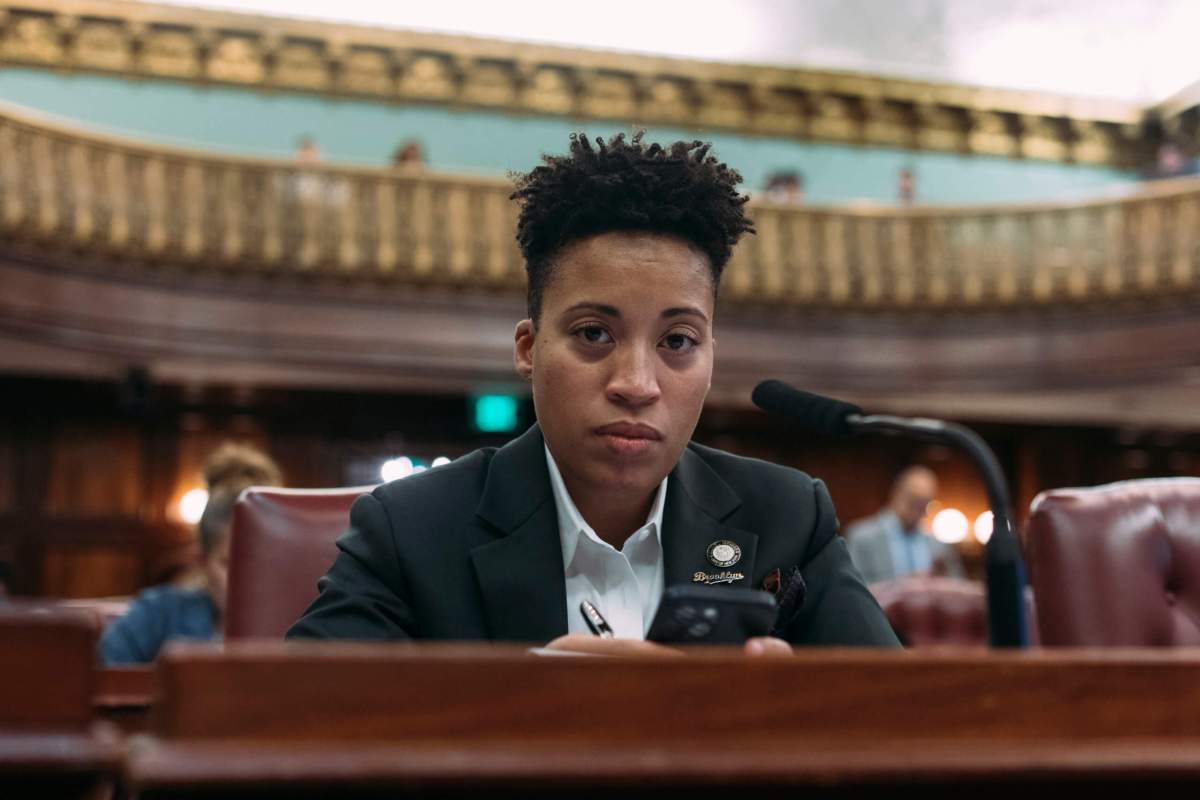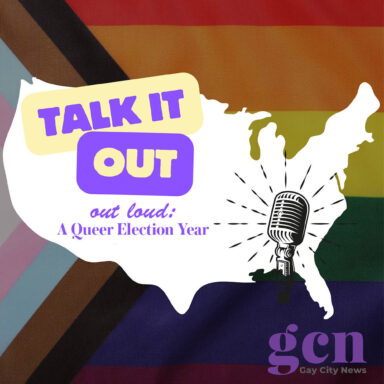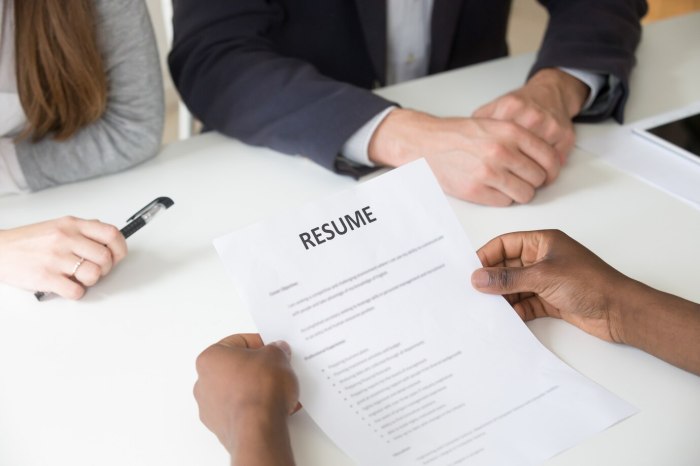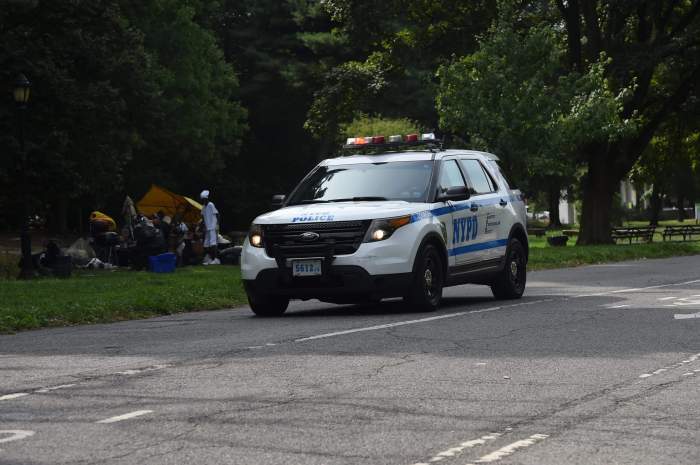Last year, a host of brand-new New York City councilmembers took their seats in City Hall for the very first time. Among them was councilmember Crystal Hudson of District 35, representing Prospect Heights, Fort Greene, Clinton Hill, and parts of Crown Heights and Bedford-Stuyvesant. A former city government employee and the founder of a local mutual aid group, Hudson was elected in 2021 and became one of the first gay Black women ever to the council.
Now a little over a year into her first term — and facing the prospect of council elections this summer — Hudson is reflecting on her first 365 days in office: what she’s accomplished, what she’s learned, and what she’s planning for this year and the hopeful future terms to come.
Hudson’s first victories
Hudson sits on eight council committees: Health, Cultural Affairs, Finance, General Welfare, Housing, Elections, Ethics, and she is chair of the Committee on Aging. One of her proudest victories so far relates to her position on the Committee on Aging: the council recently voted to pass three of the 10 bills she proposed in her “Age in Place NYC” package, which was crafted to make the city a suitable place for older adults to live.
Since the start of her campaign, Hudson made it clear that taking care of the city’s seniors is one of her top priorities. After Hudson’s mother was diagnosed with Alzheimer’s disease, she became her primary caregiver. Older adults currently represent 20% of the city’s entire population and, and that number is expected to grow to 25% by 2040, as the next generation ages, compared to just 3% growth in the general population.
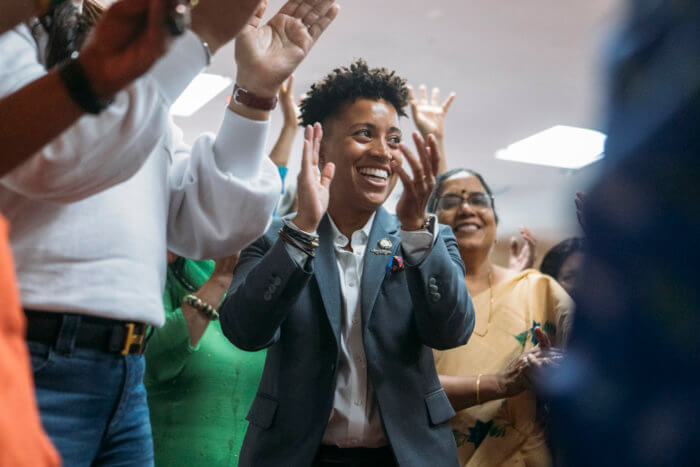
The first bill that passed aims to ensure that the city has culturally relevant resources for people at older adult centers, which are critical to connect with the 50% of New Yorkers ages 65 and up who are foreign-born. The council’s Department for the Aging will work with senior centers to expand programming to include linguistic and cultural programs for the communities they serve.
“This is one that is particularly important in a city like ours, where we need to make sure that older adults are getting resources and services in their native language,” said Hudson. “When this is implemented, it will make a difference almost immediately in how comfortable and included in our system older adults feel. We will push for centers to serve them food that is related to their cultures and for there to be activities they are culturally familiar with.”
A second bill passed mandates that the department put out and distribute a “Know Your Rights” pamphlet for older adults, who may struggle to learn about and capitalize on the resources available to them through the city.
“Talking to constituents who come to our office, we saw many of them don’t necessarily go to a senior center,” Hudson said. “They know that there might be other services and resources out there for them, but they don’t know exactly know how to be connected with them. If not through a center, then how can they get that information? The pamphlet is an opportunity for the city to provide that information outside of just relying on people to show every week to their local center.
The third bill council passed expands the right to counsel to people age 60 and over who are above the federal poverty line. In housing court, under NYC’s Right to Counsel law, all low-income tenants — those earning below 200% of the federal poverty level— are entitled to a free attorney when navigating an eviction case. Independent research estimates that 82% of tenants in eviction cases qualify based on income.
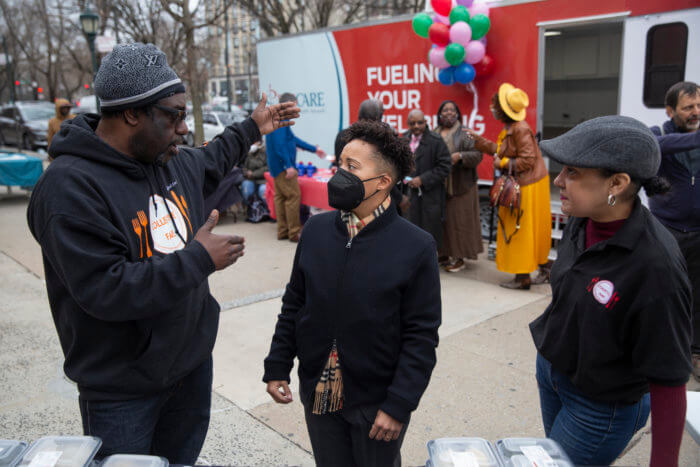
“This is not for rich folks,” said Hudson. “This is essentially for people who might make just over the federal poverty line and who might be facing eviction. Really, nobody should be evicted, but particularly people who are older, certainly shouldn’t be evicted or face likelihood of eviction.”
These bills will take effect in late July, 180 days following their passing in Jan. 19th. Hudson said her team will continue to push negotiations with the city’s administration to cover the $80 million service providers estimate the extension of the Right to Counsel laws will cost using funds from the budget for Federal Year 2024.
Challenges faced in the first year
According to Hudson, the biggest challenge she faced through the year was “not always being able to help somebody or solve a problem for someone.”
“We receive hundreds of calls and emails and visits from people in any given month,” she said. “People come to us with issues that are outside of the city’s jurisdiction and we make referrals, but we are not able to help. We also get people who come to us when they are about to be evicted or when they’ve just been evicted instead of when they didn’t pay that first month’s rent that they weren’t able to cover. Once that eviction has already happened, there’s just no way for us to get somebody into an apartment immediately. They’ve got to go through the system and that’s a really hard news to deliver.”
In December, Hudson launched a new monthly column, “Crystal’s Corner,” in Brooklyn Paper. Each month, the councilmember writes about an issue facing their constituents and the city at large and offers suggestions for solutions or for policy changes to address the root of ongoing issues.
Other challenges Hudson has faced are consequences of a common and unfortunate situation in New York —housing disputes.
± One of the most common issues constituents bring to Hudson’s office is housing issues — bad landlords, poor living conditions, and more — and Hudson is frustrated by the lack of action taken to curb bad behavior by big corporate landlords. John McCarten/NYC Council Media Unit
“Hearing about and seeing some of the conditions that people live in, with leaks and with mold and they’ve got babies and rodents,” she said. “Then noticing that negligent landlords are literally doing nothing about it. It’s hard, but we try to push.”
When it comes to landlords who are one property owners, Hudson feels there should be a mediation system that keeps everyone out of court and safe from evictions. However, in cases where negligence committed by big corporate landlords endangers the wellbeing of tenants, she believes more severe measures are needed.
“What we see with big corporate landlords so often is that they take the minimal fines that we enforce as a cost of doing business,” she said. “They’re not making repairs in their units, they’re harassing tenants for the sake of moving people out and renovating apartments and bringing in people with higher rents and I do think that we need more punitive measures for those types of egregious behaviors that, in my opinion, should be criminal.”
NYC’s eviction rate is on the rise, with marshals removing nearly 4,400 households from their apartments in the year since January 2022, when a freeze on most ejections expired, according to eviction data.
The next year in office
Hudson’s plans for the short term future include implementing a “Black Agenda” for NYC, a policy report that lays out the ways in which the city is capable of undoing and addressing a lot of “anti-Black policies, practices, and laws that we have on the books.”
“When Black people fare well, everybody fares well, so it is not an agenda that’s meant to be exclusively for Black people, but the opposite,” said Hudson. “By centering the experiences of Black people who have experienced redlining, who have experienced disproportionate health impacts, an unequal segregated education, what we’re saying is that if we actually center those experiences of Black people and address those issues, then everybody will be better off.”
The 30-plan also includes measures on environmental justice, criminal justice, housing and creating a basic income pilot program in the zip codes with the highest rates of gun violence. All together, the Black Agenda sets a course to improve health outcomes, public safety, wealth and jobs, and more.
“We know that there’s a direct correlation between safe communities the communities that are the safest, that have affordable housing opportunities, good schools, access to quality healthcare and real job opportunities with family sustaining wages,” said Hudson. “The more we can address those issues in particular neighborhoods and communities the safer those communities will be.”


